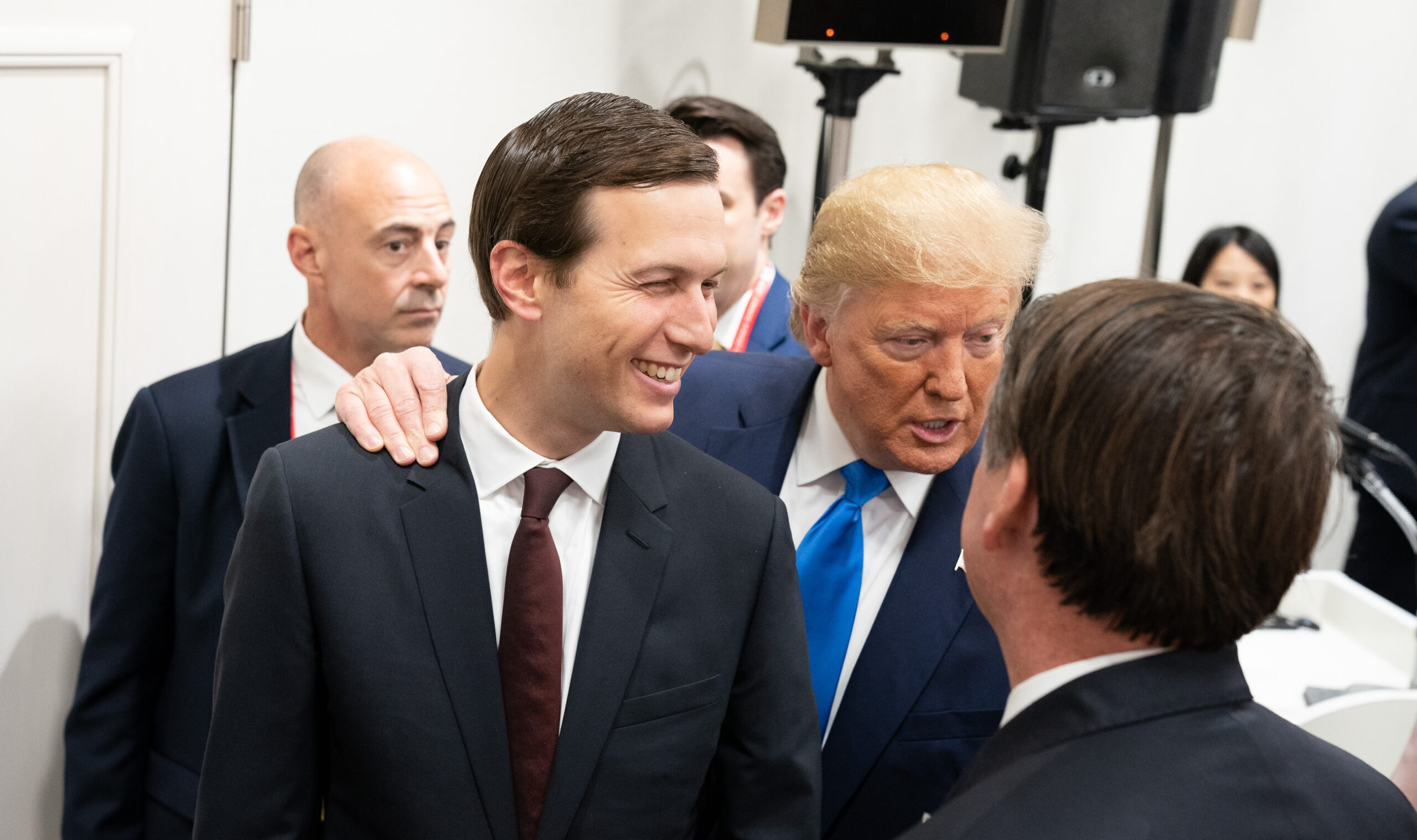Jared Kushner for Secretary of State? Really?
Some GOP senators are allegedly in love with the idea of Jared Kushner being Trump’s next secretary of state. You have to wonder why.

The conventional wisdom is that the core problem for the first Trump term was one of staffing. President Trump’s team did not have the infrastructure in place to fill out an America First administration; chronic personnel shortages and, particularly after Steve Bannon’s departure, a resort to bog-standard GOP staffing pipelines ensured that, even when policies were well articulated, execution was stymied by the lack of non-hostile manpower.
Nowhere was this dynamic more evident than at the State Department. Career officials resigned in large numbers, depleting a diplomatic force that was already understaffed; those that remained were hostile, sometimes openly so. The department was helmed first by the hapless Rex Tillerson, who was for whatever reason ineffective, and Mike Pompeo, who was at best equivocally aligned with the America First foreign policy program. Trump had no Kissinger.
Conservative networks are attempting to build the infrastructure to avoid the manpower failure in the event that he wins a second term—a difficult feat, but more likely than the mainstream press would have you think. The Heritage Foundation’s Project 2025 is a particularly ambitious effort. Yet these measures will be only as effective as the cabinet-level officials who are responsible for translating the dicta of the Oval Office into plans of action, particularly action in the face of an overwhelmingly hostile career civil service.
This leaves us with the pesky secretary of state question: Who will be Trump’s Kissinger? According to a brief notice in Vanity Fair, the New York-based gossip and fashion magazine, some Republican senators—based on the target demographics of Vanity Fair, we’re guessing South Carolina’s Lindsey Graham is one—are bruiting the name of Jared Kushner, Trump’s own son-in-law.
The points in his favor are obvious. Family does not (or should not) require the same level of loyalty-testing, so there is (or should be) little concern of the kind of outright defiance Trump faced from some members of his cabinet. The Abraham Accords, perhaps the signature foreign policy achievement of the Trump era, was Kushner’s particular project (accomplished with the aid of, bizarrely, the erstwhile CEO of WeWork and the funniest character in American public life today, Adam Neumann).
Subscribe Today
Get daily emails in your inbox
On the other hand, we know a few things about Kushner. As Vanity Fair points out, he’s got a lot of money in Saudi investments, including Saudi investments in Israel. (Kushner’s foreign business is widely thought to have played a role in the difficulties he had obtaining a clearance in the first Trump term.) As George O’Neill has pointed out in these pages, he has no personal connection to Trump’s base or even much of the classic GOP coalition; he has been a Democrat most of his adult life, and was raised by wealthy Democrats in New York. As our own Curt Mills wrote in the same, he is soft on China and hard on Iran. He is hawkish on LGBT rights, something that matters rather more for American foreign policy than you might expect. Family loyalty is all well and good, but you can’t help but feel that maybe Kushner is pushing a vision of “America First” that is an awful lot like Bushism or even Obamaism.
Would a Kushner tenure at State be the forceful conquest and occupation it must be, or would it be an ideological homecoming for the golden boy? Last March, Phillip Linderman reviewed Pompeo’s not-quite campaign memoir, identifying several points of departure for Trump’s next State chief. Most of these action items pertain to ameliorating the effects of a sclerotically liberal-internationalist Foreign Service—“For a conservative secretary in particular, the much bigger priority…is to ensure that department careerists are not out there making their own policies”—including the acquisition and support of ideologically aligned career staff. Does Kushner have the inclination to do any of that hard work against his natural allies and fellow travelers?
A body has a diversity of members; so do most administrations in basically liberal democratic countries. Coalitions are useful, even necessary. Trump’s son-in-law remains a valuable asset, but probably in a reprise of the role he played during the brokering of the Abraham Accords—a personal envoy whose connection to the president acts as a bond of faith to the involved parties. It seems risky to give him more generalized powers outside his particular projects, either as a cabinet-level appointee or as a utility-player “No. 2.” (One wonders whether things would have played out differently had Trump replaced Kushner with Bannon in 2020, as he reportedly considered.) Personnel is policy, as has been repeated time and again in the past seven years. Kushner, despite his virtues, just doesn’t seem like the man to implement that insight at Foggy Bottom—especially if his biggest cheerleaders are GOP senators talking anonymously to Vanity Fair.
Comments